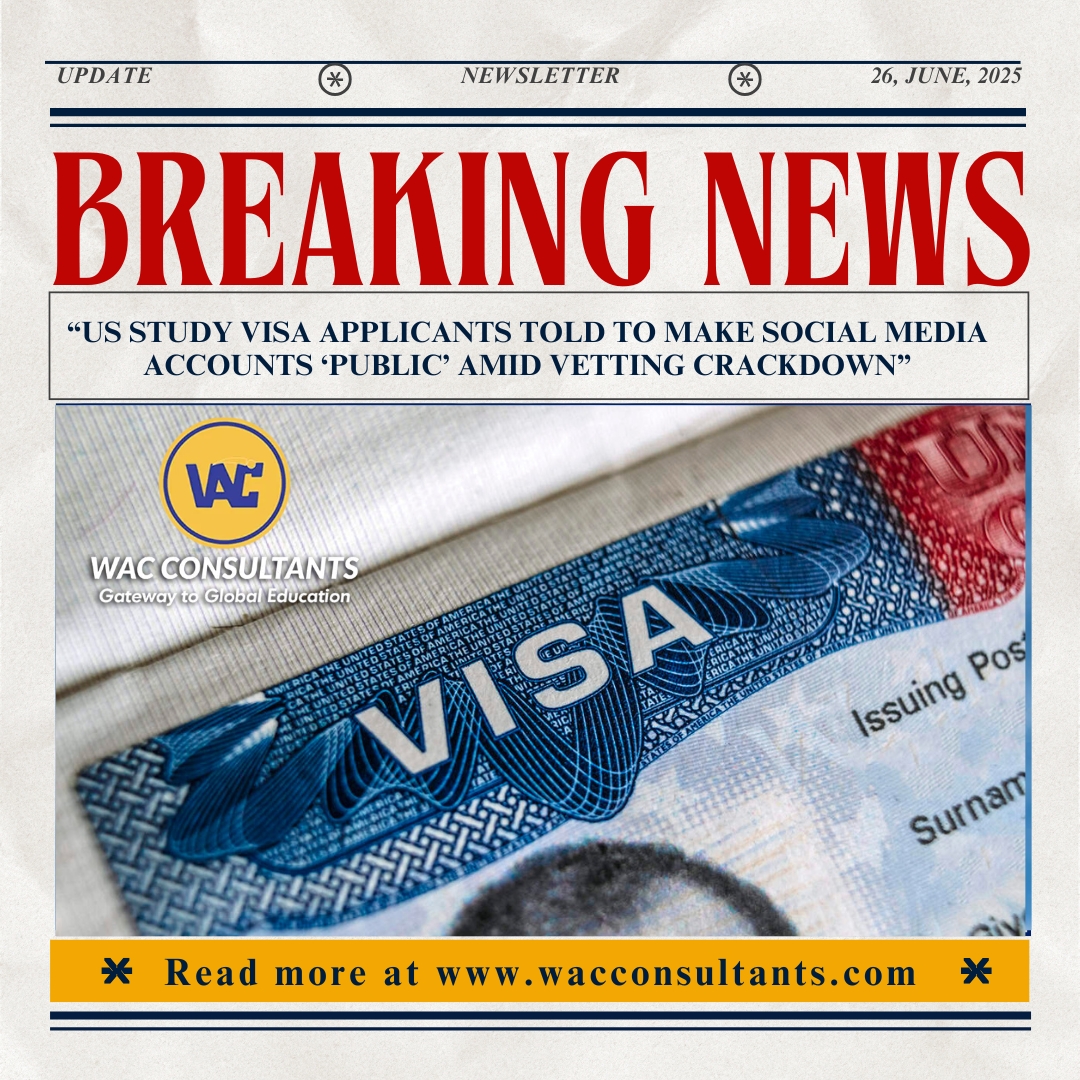“US study visa applicants told to make social media accounts ‘public’ amid vetting crackdown”
What’s Happening?
The US government has introduced a stricter social media vetting policy for people applying for student (F), vocational (M), and exchange visitor (J) visas.
From June 25, 2025, all applicants are “requested” to make their social media accounts public — so that US consular officers can view, verify identity, and assess the content before approving a visa.
🚨 Why This Matters:
- Longer visa processing times: Immigration experts believe this new policy will slow down visa approvals, especially since officers now have more data to check — including posts in foreign languages, which they may not understand.
- Backlog concerns: The policy comes just as the US resumes visa interviews after a 4-week freeze, raising fears of serious backlogs.
- Applies to all applicants: Even those who have received a US visa in the past will be re-vetted under the new rules.
🔍 What Are They Looking For?
Consular officers have been instructed to deny a visa if an applicant’s public posts show:
- Hostile or offensive views about the US, its people, government, or values
- Support for terrorist groups or anti-US ideologies
- Anti-Semitic views, even if the applicant is otherwise eligible
They will also assess if private account settings seem like an attempt to hide something, possibly harming the applicant’s credibility.
📱 Background:
Since 2020, US visa applicants have already had to list all social media usernames used in the past 5 years on their applications. But now, the focus has shifted to public access for active screening.
💬 Expert View:
James Hollis, a US immigration lawyer, said the new policy could “grind processing to a halt”, especially since officers are not trained in every language or cultural context of applicants’ posts.
🎓 Impact on Students & Universities:
- Could discourage international students from applying to US universities
- May harm the US’s global image as a welcoming education destination
- Might reduce enrollment and hurt the US higher education sector, which relies heavily on international students
📌 Summary:
The Trump administration is tightening social media checks for student visas. From June 25, all applicants must make their accounts public so officers can scan for anti-US sentiments or security threats. The move is expected to increase delays, frustrate applicants, and stress consular systems, raising concerns across the US education sector.


